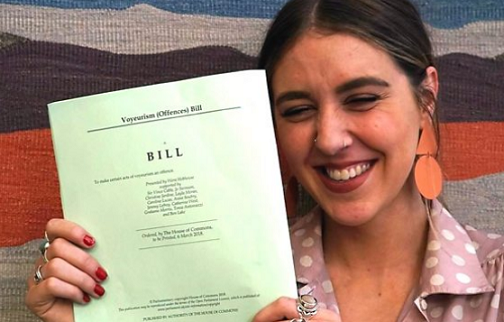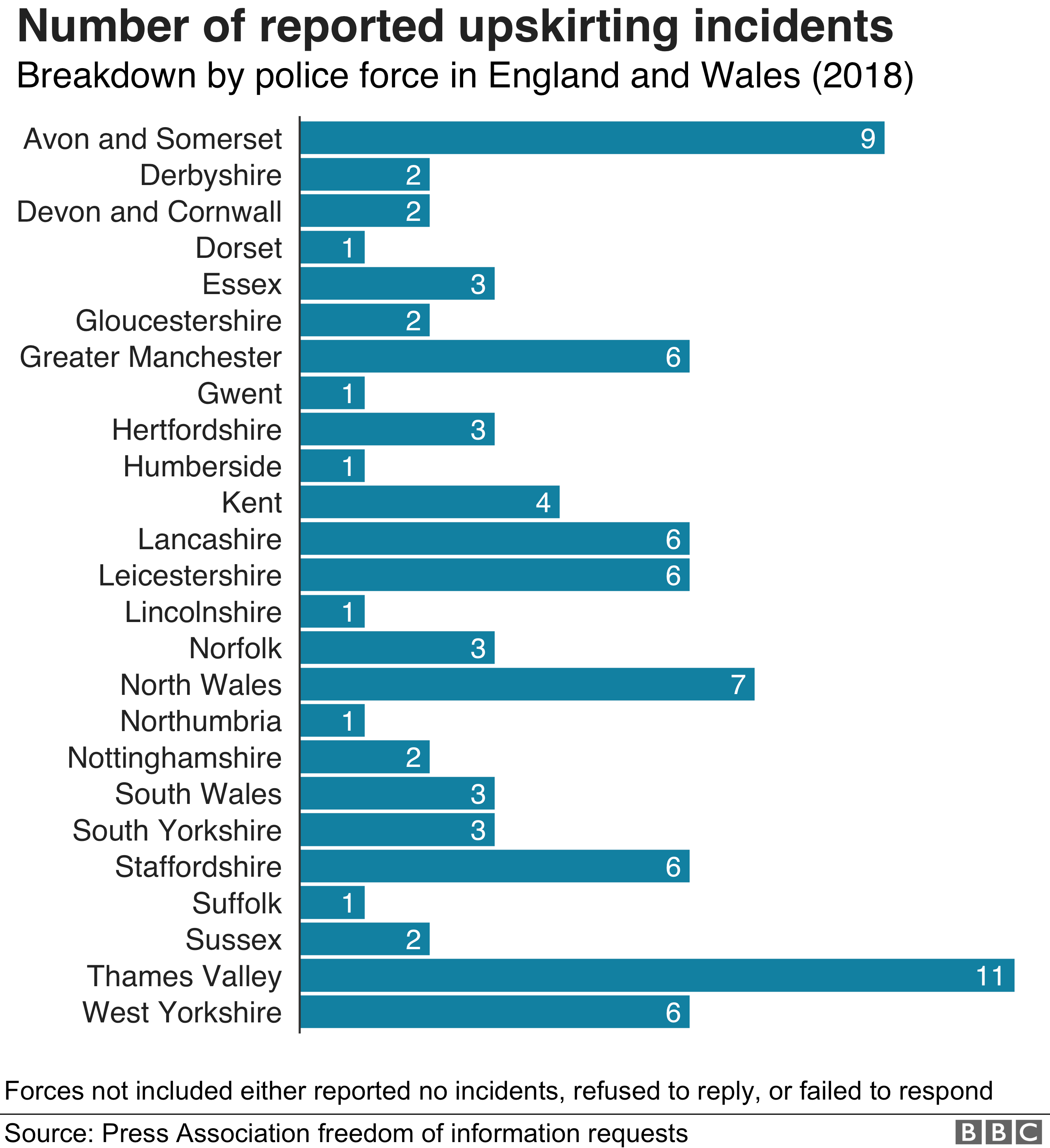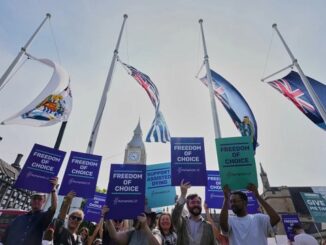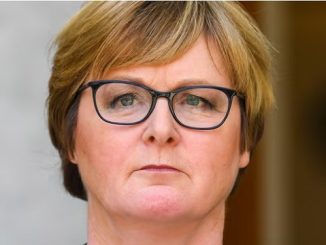
Upskirting is now a criminal offence in England and Wales after a campaign by a woman targeted at a music festival.
Offenders will face up to two years in prison for taking an image or video under somebody’s clothing in order to see their genitals or underwear.
Gina Martin, who led the calls for change, said she hoped the change in law would help people “feel comfortable” to report such crimes.
It is already a specific crime in Scotland but not in Northern Ireland.
Speaking on the day the law came into effect, Ms Martin called on people to report upskirting when they see it happen.
She told BBC News: “If a new law’s there, great – but if we don’t know about it or aren’t reporting it, [then] it doesn’t do anything.
“We have to build a picture of how much this happens, because it happens a lot.”
Prime Minister Theresa May described upskirting as “degrading and humiliating” and said offenders should “feel the full force of the law”.
How the law was changed
Ms Martin, 27, was waiting to watch The Killers perform at the British Summer Time music festival in London’s Hyde Park in July 2017 when a man put his phone between her legs and took pictures.
After informing the police, she was shocked to discover upskirting was not a specific offence and the case had been closed.
A few days later she wrote about what had happened on Facebook. Her post went viral with other women sharing similar experiences.
Soon an online petition calling for police to reopen the case had received 50,000 signatures. She also wrote a feature for the BBC News website explaining her battle, recalling the dramatic moment she chased after the man who had taken the unwanted photo.
It wasn’t long before the campaign was picked up by Lib Dem MP Wera Hobhouse.
Encouraged by government ministers, she brought a private members’ bill backing the creation of an upskirting offence.
Her bill was expected to sail through the Commons, but parliamentary rules meant it only required one MP to shout “object” to block its progress.
The bill was initially blocked by a Tory backbench MP, in a move which was widely criticised.
However, Ms Martin’s campaign secured government backing on 15 July last year and the Voyeurism (Offences) (No. 2) Bill was put before Parliament days later.
The new legislation was approved in the House of Lords and has now passed the formality of Royal Assent to become law.
At the time, Ms Martin said: “To the outsider, the ordinary person, law and politics are complex and daunting. But both are penetrable if you believe in yourself and find the right support.”
She said the experience had been a “steep learning curve” in how the political system works – but that the decision was “politics and society at its best”.
What is the new law?
The new offences apply in instances when:
- Without consent, a person takes pictures beneath a person’s clothing to observe their genitals or buttocks, whether covered or uncovered by underwear
- The offender has a motive of either gaining sexual gratification or causing humiliation, distress or alarm to the victim
The Voyeurism (Offences) Act 2019 also ensures that the most serious offenders, where the purpose of the offence is for sexual gratification, are made subject to notification requirements (often referred to as being placed on the sex offenders’ register).
More incidents reported
New police figures show that more people are reporting upskirting.
Data obtained by the Press Association shows that the number of reported incidents rose from a total of 78 between April 2015 and April 2017 to 94 for the whole of 2018.
The vast majority of cases involve female victims and male perpetrators, according to the data released by police forces under Freedom of Information laws.

The police forces gave details of the incidents reported to them last year, with victims including pensioners and schoolchildren.
One case involved a 70-year-old woman, Essex Police said. The same force was involved in a case where a suspect was charged with indecency after upskirt images of a child aged between seven and nine were discovered in his possession.
Campaigners from a children’s charity, Plan International UK, suggest that the problem could be more widespread than official figures show.
The charity says its own research, which surveyed 1,004 girls in the UK aged between 14-21, found that one in 10 girls have experienced upskirting, and 52% didn’t tell anyone about what happened to them.
Lucy Russell, head of girls’ rights and youth at the charity, said: “The government is recognising that street harassment is not OK, which is a huge step forward.
“However, street harassment has become so normalised that girls are telling us they aren’t speaking out about it because they’re too embarrassed or think they won’t be taken seriously.”
She suggested more action should be taken at local level to encourage women to report offences.
‘Full force of the law’
Before the law was passed victims and police in England and Wales were only able to pursue offences of outraging public decency or as a crime of voyeurism. Unlike other sexual offences, victims of those crimes do not have automatic anonymity.
The Ministry of Justice said the new law “bans the degrading practice to deter perpetrators, better protect victims, and bring more offenders to justice”.
Justice Minister Lucy Frazer added: “We have always been clear – there are no excuses for this behaviour and offenders should feel the full force of the law. From today, they will.
“By taking decisive action and working closely with Gina Martin and other campaigners, we have ensured more people are protected from this degrading and humiliating practice.”
In Northern Ireland, upskirting is still not a specific offence although the Department of Justice (DoJ) has launched a consultation on potential changes to legislation.
Analysis
By Clive Coleman, BBC legal correspondent
Until now offenders could only be prosecuted for voyeurism or outraging public decency.
But voyeurism only applies to filming in “private” while outraging public decency usually requires a witness – and upskirting often goes unobserved.
So, following tireless campaigning by Gina Martin, the government has created a specific offence of upskirting where the purpose is to obtain sexual gratification, or to cause humiliation, distress or alarm.
It covers culprits who say images were just taken “for a laugh”, and paparazzi who take intrusive images.
Source: bbc.co.uk






Be the first to comment